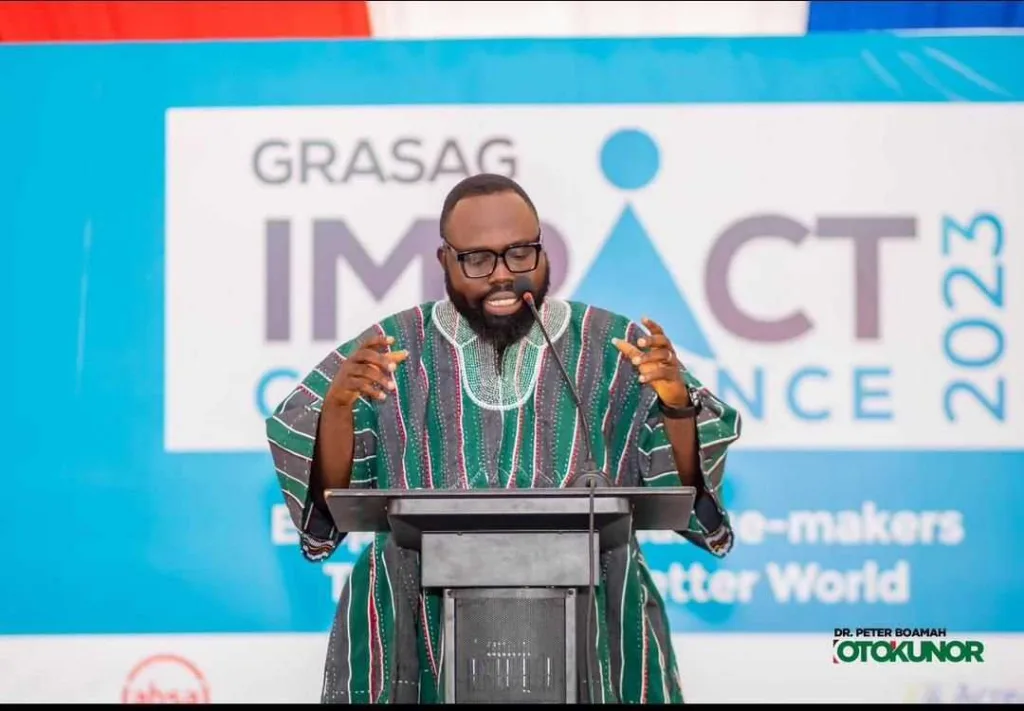NDC’s Dr. Otokunor Urges Calm Amid MMDCE Selection Protests in Ghana
Presidential Advisor Addresses Concerns Over Local Government Appointments
Dr. Peter Boamah Otokunor, Director of Presidential Initiatives in Agriculture and Agribusiness and former Deputy General Secretary of the National Democratic Congress (NDC), has called for calm among party supporters following recent unrest over Metropolitan, Municipal, and District Chief Executive (MMDCE) nominations across the country.
Speaking on Channel One’s Newsroom on Monday, April 14, Dr. Otokunor emphasized that claims of imposition in the MMDCE selection process are unfounded and should be disregarded by party faithful.
“They should allay their fears. It is not about imposition,” Dr. Otokunor stated firmly. “People have gone through vetting. When people go through vetting, there is a criteria that is used to mark them out. Some may perform better than others.”
Protests Erupt in Multiple Constituencies Over MMDCE Nominations
Tema Metropolitan Assembly Tensions
The reassurance comes in the wake of significant protests in several constituencies, including Tema, where angry youth stormed the Metropolitan Assembly demanding the appointment of an indigene as mayor. The protesters burned tires and beat drums to express their dissatisfaction amid rumors that Ebi Bright was being considered for the position over Patience Ankamah Addo, who had previously been tipped for the role.
Asante Mampong Violence
Similarly, in Asante Mampong, disgruntled NDC supporters took more drastic action by vandalizing the party office and setting items ablaze to protest the Municipal Chief Executive nomination process. These incidents highlight the tension surrounding local government appointments in Ghana’s political landscape.
Inside the MMDCE Selection Process: Transparency and Merit
Dr. Otokunor provided insight into the rigorous selection process for MMDCEs, explaining that it follows a structured and transparent protocol designed to identify the most qualified candidates.
Vetting Criteria and Final Selection
According to the Presidential Advisor, nominees undergo thorough assessment based on clearly defined performance metrics during the vetting process.
“Obviously, at the end of the day, you can’t have two DCEs. One must perform, and that person will be decided upon,” he explained.
Presidential Confirmation Process
Dr. Otokunor further clarified the procedural aspects of the nomination process: “The interesting thing is that immediately after this vetting, the decision is made and it is not changed anywhere. The decision that is made is communicated officially to the office of the president, who now officially makes the determination and announces it through the local government minister.”
This explanation addresses concerns that nominations might be changed after the vetting process is completed.
Understanding Ghana’s Local Government Structure
The appointment of MMDCEs represents a critical component of Ghana’s decentralized governance system, which aims to bring decision-making closer to communities while maintaining national cohesion through presidential appointments.
Role of MMDCEs in Development
MMDCEs serve as the president’s representatives at the local level and play vital roles in implementing national policies, coordinating development activities, and addressing local concerns. Their selection often generates intense interest within communities due to these officials’ significant influence over local development priorities and resource allocation.
Historical Context of MMDCE Selection Controversies
The current tensions surrounding MMDCE appointments are not unprecedented in Ghana’s political history. Similar protests have occurred during previous administrations, reflecting the high stakes involved in these appointments and the complex interplay between merit-based selection and political considerations.
Moving Forward: Building Trust in the Selection Process
Dr. Otokunor’s assurances aim to rebuild trust in the MMDCE selection process among NDC supporters and emphasize the government’s commitment to transparency and merit-based appointments.
“The process is transparent and supporters should trust the system in place,” he concluded.
Expectations for Newly Appointed MMDCEs
Once officially announced by the Local Government Minister, the newly appointed MMDCEs will face the challenge of uniting their communities, including those who may have supported different candidates for the positions. Their ability to build inclusive local governance structures will be crucial to the success of the NDC government’s local development agenda.



